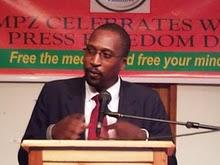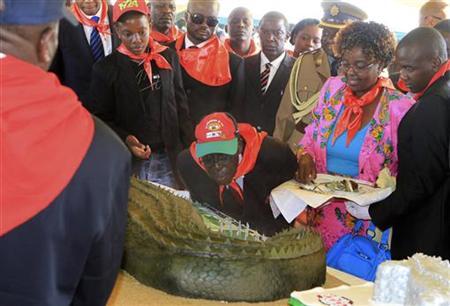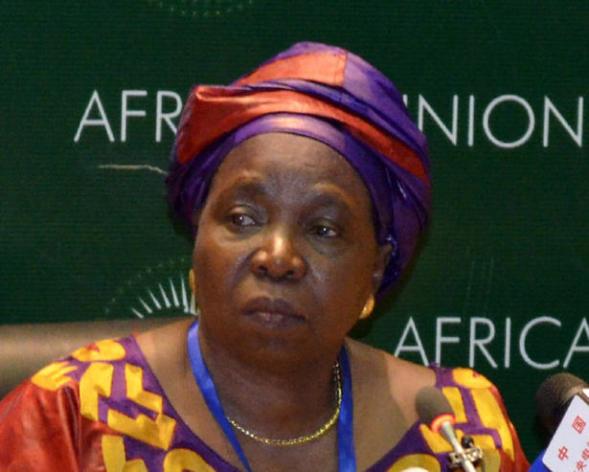President Mugabe’s “˜ambiguous revolution by political default’ — by Takura Zhangazha

On the occasion of his eighty-eighth birthday, President Mugabe gave what appears to be two separate interviews where he talked on matters to do with his political and personal reflections. The first interview which appeared in the Sunday Mail seemed to be less rehearsed while the second one which appeared on the state controlled Zimbabwe Broadcasting Corporation (ZBC) television seemed to be a bit more cautious and diplomatic particularly with regards to his counterpart political parties in the inclusive government.
But overall the interviews had the same intention and probable effect to his supporters of presenting the Zimbabwean leader as a “˜revolutionary’ who is keen on being known and remembered as such. That is well and good since we all have the right to be persuaded by one political idea/individual or the other.
And since President Mugabe said in his ZBC TV interview, we are all “˜sons and daughters of the soil’ and are entitled to different opinions, I have an opinion on his leadership and the issues he has raised on his 88th birthday.
My initial point of analysis is with regards to his reference to the revolutionary intentions of the current policies of his party, Zanu Pf. This, he argues, is via the “˜taking back’ of the land and now the ongoing indigenization processes in mining and other sectors of the economy. On paper, the language appears revolutionary and talks to what can be considered nationalist sentiment stemming from the liberation struggle. In reality and practice, the policies that have and are being undertaken have been largely indicative of “˜revolution by default.’
This should be taken to mean that the land redistribution was done under specific political pressure that made it more of a political survival strategy than a value based revolutionary one. But the land redistribution exercise has occurred all the same. It however remains a “˜default’ policy position which is now controversially being undermined by the Mugabe government’s ambiguous commitment to leasing off large tracts of land to bio fuel companies, safari operators and mineral exploration companies. This has led to the eviction of villagers as well as negatively affected the environment. As a result, there is a growing chasm between the nationalist rhetoric of the president and the realities on the ground.
Where the president mentions indigenization of the national economy as one of his policy priorities he has not done a clear ideological examination of what exactly he means. It is inadequate to merely equate the 51% taking over of a multinational company or bank by indigenous Zimbabweans as revolutionary in and of itself. There must be clarity as to the ideological purpose of taking over such companies as well as the expected societal end product.
The current rush by big business in offering communities shares in mining concerns is more indicative of a new found “˜elite cohesion’ around wealth accumulation and does not particularly point Zimbabwe toward a more equitable and economically just society. Wanting a share in a company on the basis of ‘indegeneity’ is the stuff of identity politics and nowhere near being positively revolutionary. Given the fact that there is a new found global “˜new scramble forAfrica’ Zimbabwe’s political economy is likely to lean further toward an African neo-liberal and unjust framework. In so doing, the indigenous business people will be more of a “˜comprador bourgeoisie’ for global capital, no matter whether it is coming from the West, the Chinese or the South Africans.
A second point of analysis about President Mugabe’s interviews is where he outlines his views on the contentious and problematic issue of leadership succession in Zanu Pf. In both interviews he contends that he is still capable of leading. It is however in the Sunday Mail interview where he comments on how the matter is a serious cause of division in his party, a point which indicates his rather convenient claim to championing his party’s unity in place of leadership succession. It is a convenience that he must know will not last, not by dint of age but by the fact that political parties that have been in power for as long as Zanu Pf have always had an evident successor (even his erstwhile friends the Chinese have an evident successor). It is therefore a serious indictment on his leadership style that it is not evidently so for his own party, no matter how many congratulations he may get on his birthday.
On the other matters that relate to elections, the constitution and his colleagues in the inclusive government, the President’s views have been known for some time now. Save to say that his insistence on elections is now clearly based on the constitutional prerogative of the President to call for them as he states in the ZBC TV interview. Essentially he indicated that he has no problem with unilaterally calling for an election this year, with or without a constitution. Whether that becomes a reality or not is probably dependent on the ability of the other GPA principals and the SADC appointed facilitator to dissuade him from calling for them in 2012.
Finally, it is evident that President Mugabe has great admiration for Fidel Castro of Cuba and Kwame Nkrumah of Ghana. He makes mention of the two leaders to stress the need for exemplary leadership or to make an historical point in relation to either sanctions or the African Union. In this, he may be indicating how he might want to be remembered but I wouldn’t know if like Castro, President Mugabe is persuaded that “˜history will absolve him’.
Takura Zhangazha is the Executive Director of the Voluntary Media Council of Zimbabwe (VMCZ)







